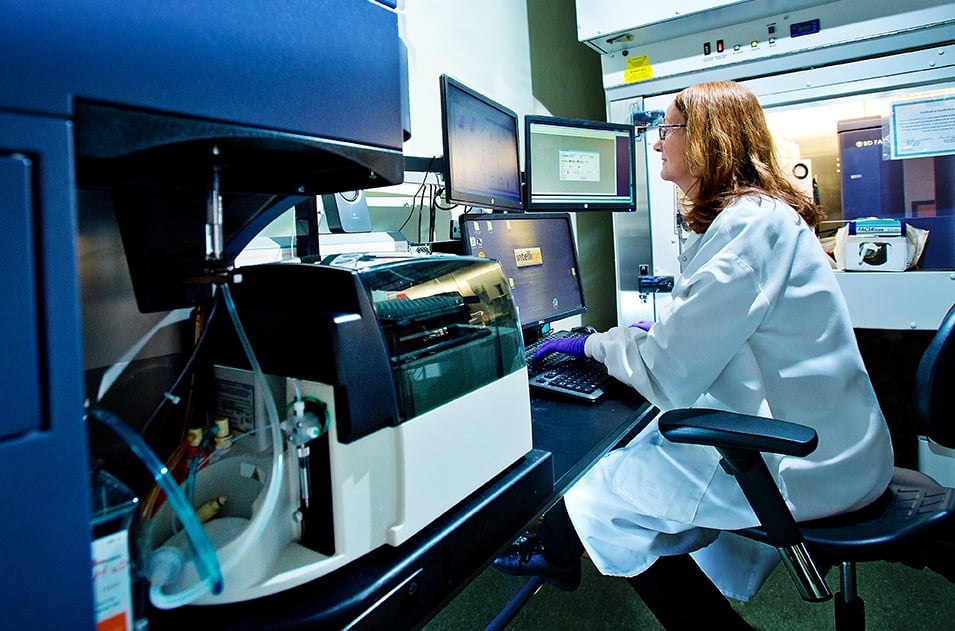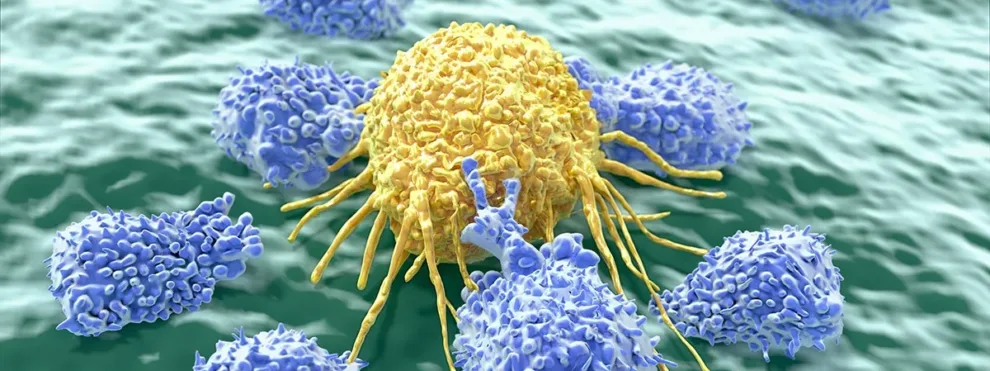Tumor-infiltrating lymphocytes (TILs) are now understood to be key players in anti-tumor responses. These cells are found in solid tumors such as those observed in breast cancer, ovarian cancer, melanoma, and lung cancer. TILs have now been harnessed to treat cancer through adoptive cell therapy protocols. As TILs are a major area of focus for both basic and clinical research, flow cytometry applications for identifying and characterizing TILs are increasingly important. Consider these key points if you are pursuing TIL research and plan to use flow cytometry.
- TIL isolation. TILs are found in solid tumors but are entangled with tumor cells, blood vessels and other tissues. In order to characterize and purify TILs for research or therapeutic applications, you will need to use a tissue dissociation protocol that can liberate TILs and allow them to be purified from other cells using magnetic cell separation or flow cytometry-based cell sorting. You will need to have a basic understanding of the immunophenotype of your TILs in order to use an appropriate staining panel for sorting or flow cytometry-based characterization of your isolated cells.
- TIL expansion. Therapeutic TIL applications require that you start with a relatively pure TIL population that you can expand ex vivo with various cytokines and growth factors in order to have enough cells to re-infuse into patients for adoptive cell therapy. Preclinical and research applications of TIL expansion can be done at a small scale and most likely do not need to meet the standards of good laboratory practices (GLP), but if you are using these TILs in clinical applications, they will need to be grown in a setting that satisfies good manufacturing practices (GMP) standards. In either of these scenarios, validated flow cytometry protocols are used to verify the purity and identity of the expanded TIL population and assure that you are working with the correct cells.
- Tweaking TILs. Current TIL research seeks to optimize the anti-tumor properties of these cells during the expansion phase. Different immunomodulators are being added to TIL cultures to improve both the viability, quantity and efficacy of this therapeutic cell product. Flow cytometry assays are critical to evaluating changes in TILs that arise during these different treatments and help scientists evaluate the potential efficacy of these altered TILs.

TILs are an invaluable cell type that is driving breakthroughs in immuno-oncology research. Flow cytometry is an indispensable tool for TIL research. Consider collaborating with experts in TIL processing or flow cytometry to further your TIL research program.

